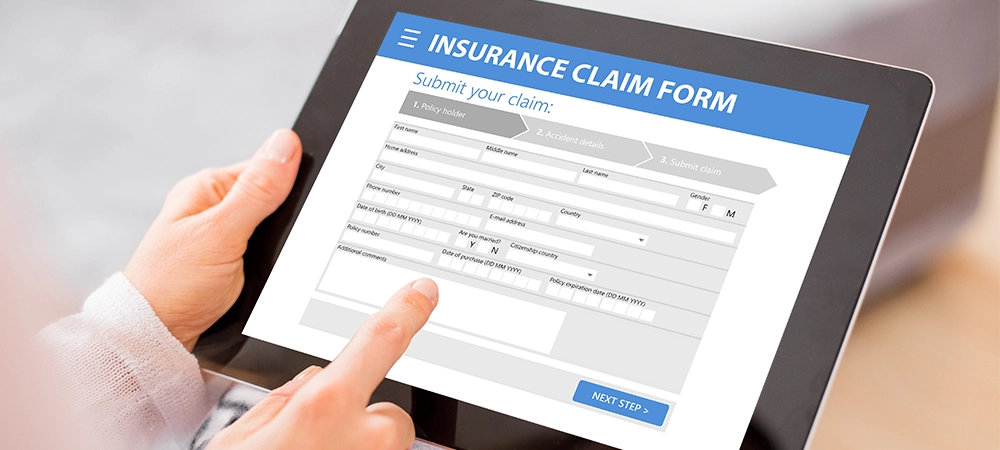Filing boat insurance claims can be taxing, especially if it’s your first time. That’s where we can help. Here you’ll learn valuable tips for boat insurance claims and advice for navigating the often complex process.
From documenting damages to working with insurance adjusters, this guide will help you ensure a smooth and successful claims experience. Let’s learn more about the claims process for boat owners.
Knowing Your Policy
Before filing a claim, it is crucial to know what your insurance policy covers, what is your deductible, and what exclusions apply based on the policy. Go through all this to ensure you have a valid claim and learn what kind of compensation you can expect.
Boat insurance policies often include but are not limited to the following:
- General liability
- Uninsured boater protection
- Damage to the boat, including the equipment, hull, furnishing, and motor
- Damage to another boat
- Theft /vandalism coverage
- Onboard personal property coverage
- Onboard fishing equipment coverage
- Medical payments
- Coverage for weather-related incidents
- New boat replacement
- Wreck removal coverage
- Fuel spill liability
In addition, you can receive payment for the boat insurance claims through one of the following ways:
Agreed Value – Applicable if the boat is deemed a total loss and there is an agreed value your insurer must pay to repair or replace damaged property without any adjustment.
Replacement Cost – The insurer will replace your boat with a new one of a similar make and model.
Actual Cash Value – The insurer pays up to the boat’s current market value (if it’s a total loss). Depreciation and the boat’s condition at the time of the loss are considered.
Document Everything
Another crucial thing to do when filing an insurance claim is to document everything. Take photos or videos that clearly show the damage as soon as you can after the incident that damaged your boat.
Then gather any invoices and receipts related to the loss, and keep a log of any communication with any other party involved in the process, including your insurer. You’ll need this information to support your claim and get fair compensation.
Be honest and accurate, not only does exaggerating the damage or providing false information about costs and the nature of the incident could result in a denial of coverage (at being dropped by your insurer), but it can also land you in trouble with the law.
Act Quickly
Most insurance companies have strict time limitations for filing a claim. Avoid waiting too long or your claim may be denied. This is because if you don’t report the incident immediately, the insurer won’t have the opportunity to determine the cause, nature, and extent of the claim.
However, you’ll need to act quickly right after the incident too. Minimizing loss or damages increases the likelihood of your claim being approved. In fact, most insurers providing boat insurance have a condition involving reasonable care from the insured in their policies.
Reporting the Claim
The next step is contacting your insurance company. Expect them to ask questions regarding the loss. You’ll receive instructions on what to do next and a claim number. Then, your insurer will assign you a claims adjuster who will contact you within 24-48 hours and start assisting with your claim.
You might be hesitant to contact your insurer because you don’t know whether the claim will be more than your deductible if your insurance rates will go up, or whether you even need to file a claim.
Call your insurance company right away to know for sure what will happen. Nowadays, even minor damages result in expensive repairs. If the repairs cost less than the deductible, most insurance companies will allow you to withdraw your claim. Your premiums won’t be affected.
Get an Estimate
The insurer will send the adjuster to investigate the incident and the damage. For minor damages, the adjuster will help you prepare a damage appraisal. However, for more extensive repairs or to determine total loss, you must obtain estimates from one or more reputable boat repair facilities.
Find a facility you’re comfortable with. Remember, your settlement will be based on their appraisal. Avoid using an auto repair shop because they might not know how to repair boats or provide an adequate estimate.
Be present when the adjuster is inspecting the boat. They’ll be happy to go through the damage with you and answer any questions you might have. If you can, provide recent maintenance records to the adjuster so they can compare them with the current state of the boat. Certain parts, like small mechanical components and canvas, have a limited lifespan and depreciate over time.
Submit the Estimate
Once you have the estimate, submit it to your insurer so they can review your claim. If they determine that the amount is fair based on the loss, they will approve your claim. Then, you’ll receive a settlement letter detailing your settlement. You’ll receive payment, which will exclude your deductible and depreciation costs. Finally, you can get your boat repaired.
Final Thoughts
Now that you know what to expect, filing a boat insurance claim will be much easier, not to mention successful. Remember to review your policy to ensure you’ll have a valid claim, document your damages, make your claim as soon as possible, be honest while doing so, and work with your insurance company through the process.
If you’re interested in making a claim or want to know more information about the process, then contact Buckler Insurance today. We’ll be happy to guide you through the process and answer any questions that you may have.







Great article, Scarlett! These tips are extremely helpful for navigating the boat insurance claims process. Documenting everything is crucial to support your claim and ensure fair compensation. I completely agree that honesty and accuracy are essential when providing information about the incident and the costs involved. Acting quickly is also important to prevent any potential denial of the claim, and it’s good to know that most insurance companies have a condition of reasonable care in their policies.
I appreciate the suggestion to contact the insurance company immediately, even if you’re unsure about the claim’s outcome. Getting an estimate from a reputable boat repair facility is a wise step, and being present during the adjuster’s inspection can help clarify any concerns. Submitting the estimate to the insurer and reviewing the settlement letter carefully is vital before proceeding with the repairs.
Overall, these tips provide a clear and concise guide for boat owners dealing with insurance claims. Thank you for sharing your expertise and making this often complex process easier to navigate!
Dear Jack,
Thank you so much for providing such wonderful feedback about our article on boat insurance claims! It makes us so happy that the tips were useful and the information clear and concise; our goal is to offer guidance that makes this part of the claims process simpler for boat owners like yourself.
At Buckler Insurance, our mission is to support and guide our clients throughout their entire claims experience. If you have any inquiries about making a claim or need further clarification on doing so, do not hesitate to contact our experienced claims team – they’re here for you and committed to ensuring a smooth and efficient claim journey!
Thank you again for choosing Buckler Insurance and trusting us. We welcome any opportunities we can assist with as you pursue insurance needs of all kinds.
All our Best Regards from the Buckler Insurance Team.